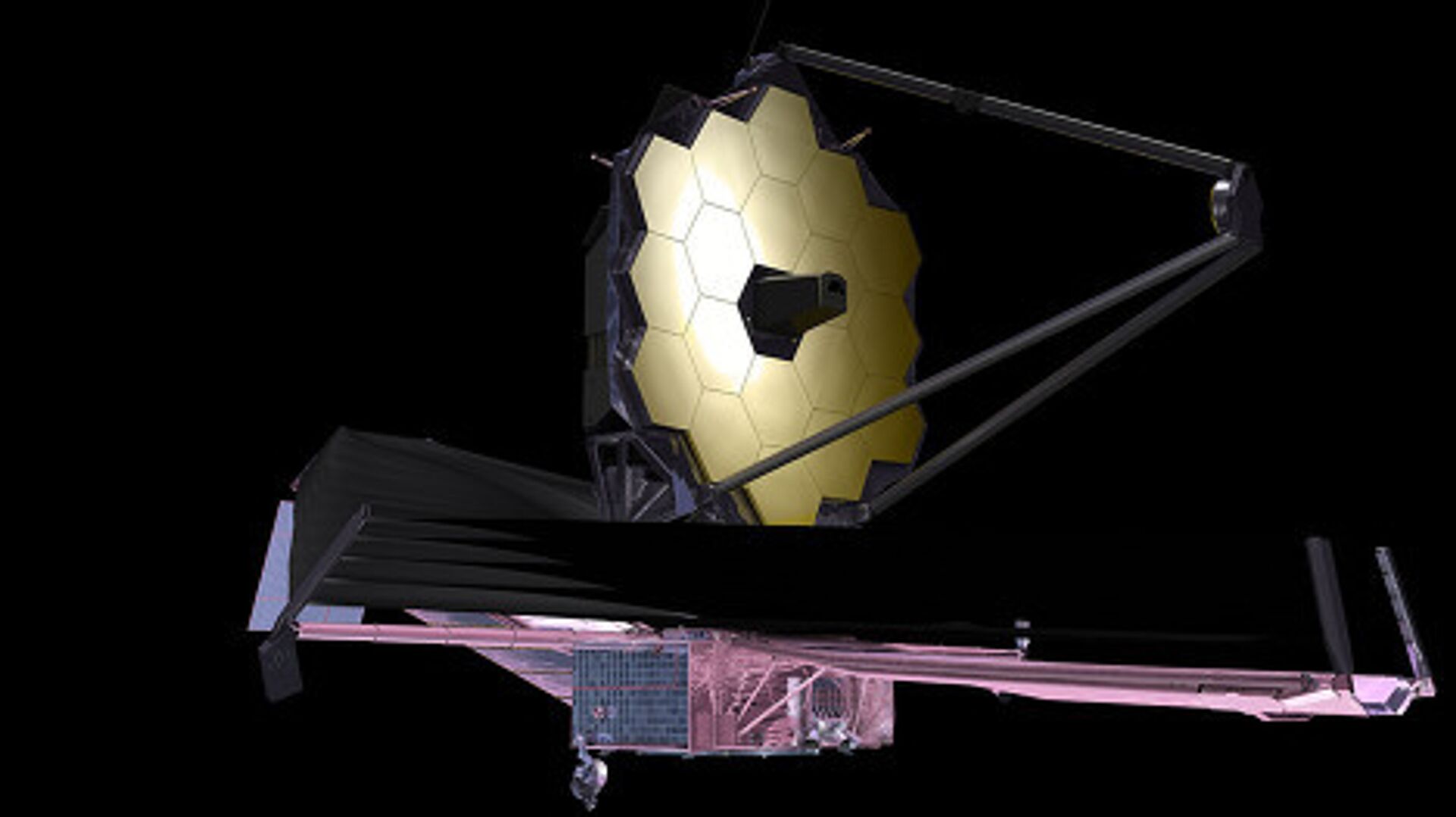https://sputnikglobe.com/20220510/former-nasa-chief-scientist-i-believe-we-will-find-evidence-of-aliens-in-my-lifetime-1095385474.html
Former NASA Chief Scientist Believes Humans Will Find Evidence of Aliens in His Lifetime
Former NASA Chief Scientist Believes Humans Will Find Evidence of Aliens in His Lifetime
Sputnik International
The James Webb Space Telescope, launched in December 2021, is expected to make finding planets outside of our Solar System far easier, and it has given fresh... 10.05.2022, Sputnik International
2022-05-10T00:00+0000
2022-05-10T00:00+0000
2022-08-06T13:32+0000
nasa
hubble space telescope
james webb space telescope
extraterrestrial
technology
jim green
science & tech
https://cdn1.img.sputnikglobe.com/img/15662/28/156622853_0:56:469:319_1920x0_80_0_0_7bd50f88eb6017c4fe37e6f6809024fd.jpg
In a roughly 20 minute interview with BBC’s HARDtalk, NASA’s former chief scientist said he believes we will discover evidence of alien life in his lifetime.Jim Green spent over four decades working at NASA before retiring on January 1, 2022. During that time, he notes in the interview, NASA has greatly increased human understanding of the cosmos. “We didn’t understand superstorms; now we do. We didn’t understand much about dark energy, dark matter; now we do and we are on it.”The greatest asset in that search will be the James Webb Space Telescope, which launched in December and is now starting to send its first test images back. The near-infrared telescope greatly outperforms its predecessor, the aging Hubble Space Telescope, and will provide clues on where we should look for life.This is not the first time Green has expressed optimism about finding extraterrestrial life. In 2019, he cautioned that the Perseverance Rover, that was about to be launched towards Mars, may find evidence of life there, and he wanted a scientific plan on what would be next.Perseverance landed on Mars in February 2021, but has not found any evidence of extraterrestrials just yet.The interview also touched on if he believes NASA is a priority of the public and US government, what he thinks of SpaceForce and how NASA will continue to operate with less cooperation coming from Russia.At the start of the interview, Green said the primary objectives of NASA are to explore the universe and find the answers to two questions: “Are we alone and how did we get here?”Green hopes that the answer will be coming soon, thanks to the James Webb Space Telescope.
https://sputnikglobe.com/20220507/the-mystery-of-mars-invisible-frost-revealed---study-1095325836.html
Sputnik International
feedback@sputniknews.com
+74956456601
MIA „Rossiya Segodnya“
2022
News
en_EN
Sputnik International
feedback@sputniknews.com
+74956456601
MIA „Rossiya Segodnya“
Sputnik International
feedback@sputniknews.com
+74956456601
MIA „Rossiya Segodnya“
nasa, hubble space telescope, james webb space telescope, extraterrestrial, technology, jim green, science & tech
nasa, hubble space telescope, james webb space telescope, extraterrestrial, technology, jim green, science & tech
Former NASA Chief Scientist Believes Humans Will Find Evidence of Aliens in His Lifetime
00:00 GMT 10.05.2022 (Updated: 13:32 GMT 06.08.2022) The James Webb Space Telescope, launched in December 2021, is expected to make finding planets outside of our Solar System far easier, and it has given fresh hope to those who wish to find evidence of extraterrestrial life.
In a roughly 20 minute interview with BBC’s HARDtalk, NASA’s former chief scientist said he believes we will discover evidence of alien life in his lifetime.
Jim Green spent over four decades working at NASA before retiring on January 1, 2022. During that time, he notes in the interview, NASA has greatly increased human understanding of the cosmos. “We didn’t understand superstorms; now we do. We didn’t understand much about dark energy, dark matter; now we do and we are on it.”
But it’s this greater understanding that will bring about the discovery, Green believes, of life outside of our planet. “Now we know there are more planets in our galaxy than there are stars. And many of them are in places much like the Earth, where we receive the light from the Sun and we can have water, in not only liquid form but frozen form, vapor form. Those are important conditions we believe for life and we are finding planets that have conditions where life may arrive.”
The greatest asset in that search will be the James Webb Space Telescope, which launched in December and is now starting to send its first test images back. The near-infrared telescope greatly outperforms its predecessor, the aging Hubble Space Telescope, and will provide clues on where we should look for life.
“We are going to start teasing out what some of these planets look like from their atmosphere. Now we are going to compare those atmospheres to the ones we know. Are they more Venus-like, are they more Mars-like, or are they more Earth-like? This is a huge step forward,” Green stated. “I think we are going to see really astounding discoveries in the next handful of years.”
This is not the first time Green has expressed optimism about finding extraterrestrial life. In 2019, he cautioned that the Perseverance Rover, that was about to be launched towards Mars, may find evidence of life there, and he wanted a scientific plan on what would be next.
Perseverance landed on Mars in February 2021, but has not found any evidence of extraterrestrials just yet.
The interview also touched on if he believes NASA is a priority of the public and US government, what he thinks of SpaceForce and how NASA will continue to operate with less cooperation coming from Russia.
At the start of the interview, Green said the primary objectives of NASA are to explore the universe and find the answers to two questions: “Are we alone and how did we get here?”
Green hopes that the answer will be coming soon, thanks to the James Webb Space Telescope.


